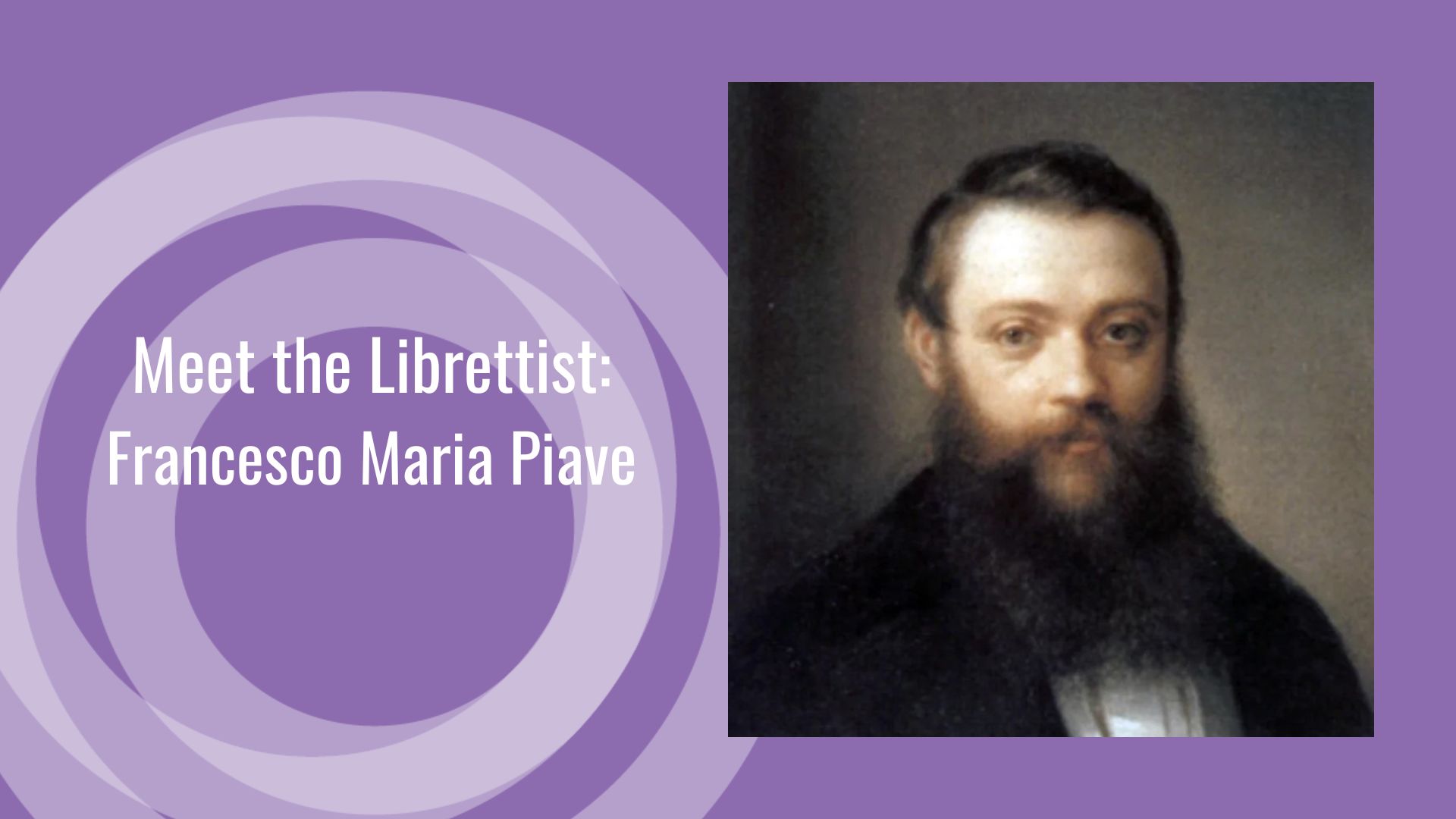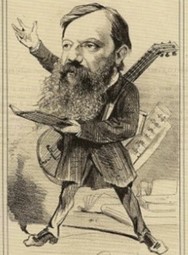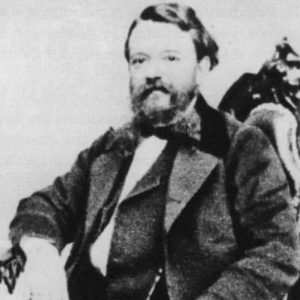Meet the Librettist: Francesco Maria Piave

By: Bethany Wood
The modern American librettist Mark Campbell likens the role of an opera librettist to an architect. A librettist uses words to create the foundation and structure upon which the composer creates a masterpiece. Campbell says, “A librettist should not be as obsessed about words as they are story and structure.” Librettist Francesco Maria Piave adapted Victor Hugo’s play Le roi s’amuse and collaborated with composer Giuseppe Verdi to create the masterpiece, Rigoletto. Learn more about the life of Piave—the architect, the librettist, the artists.
Experience Verdi’s Rigoletto November 5-13. Tickets are on sale now, starting at just $39>>
Francesco Maria Piave’s Early Life
Francesco Maria Piave was born in Murano, a series of islands just one mile north of Venice. Murano was famous for the art of glass making, and Piave’s father owned a glass factory. When their family fell on hard times, Piave and his father moved to Rome to find work. Piave, who had studied at the seminary in Venice, found jobs writing and translating and became friends with poets and literati in Rome.
After the death of his father, Piave returned to Venice in September 1838, where he worked as a proofreader and editor for a publisher named Guiseppe Antonelli. Piave also wrote about the arts for the Gazzetta privilegiata di Venezia, a magazine for privileged Venetians.
Piave the Librettist

In 1841, Piave turned his writing efforts to a libretto for composer Samuel Levi—an adaptation of Carlo Goldoni’s La Bottega del Caffe (The Coffee House). The work was never performed, but the exercise gave Piave his first experience in writing for opera. Piave completed a second libretto, for composer Giovanni Pacini, and, in 1843, agreed to write a libretto for an opera to be performed at Venice’s famed Teatro La Fenice—the composer for this opera was Guiseppe Verdi.
The Collaboration of Piave and Verdi

Piave and Verdi had not met, but the two corresponded by letter to collaborate on the libretto for Ernani, an adaptation of Victor Hugo’s play Hernani. Piave completed the libretto in less than two months, but Verdi feared the writer’s inexperience with staging an opera led him to overload the libretto with verbose passages—taxing singers and audiences alike. Traveling to Venice, Verdi met Piave for the first time. Piave and Verdi became close friends, often traveling so they could work together in person and corresponding regularly when collaborating across distances. Verdi was sometimes domineering, as when the production of Rigoletto was in jeopardy, but Piave remained loyal. Piave once described their friendship as “a faith, a religion, a cult.”
Francesco Maria Piave’s Late Life
On December 5, 1867, Piave suffered a debilitating stroke, which robbed him of his ability to speak and move. Verdi, along with others in the music community, helped support the librettist and his family during his illness. During his lifetime, Piave wrote approximately seventy librettos, but today, he is primarily remembered for the ten he wrote for Verdi’s operas, including Macbeth (1847), Rigoletto (1851), and La Traviata (1853).
Experience Verdi’s Rigoletto November 5-13. Tickets are on sale now, starting at just $39>>
—
Which Verdi and Piave collaboration is your favorite? What do you think makes a great libretto? Let us know in the comments below!


